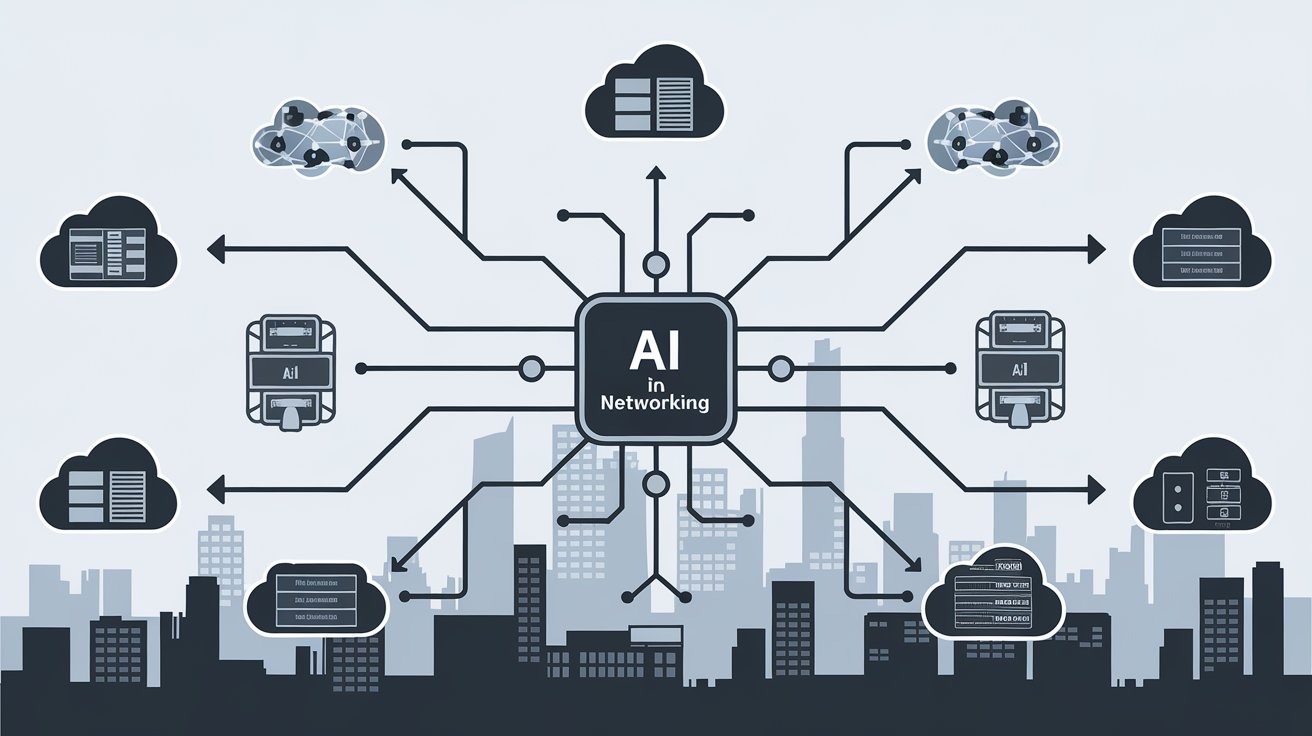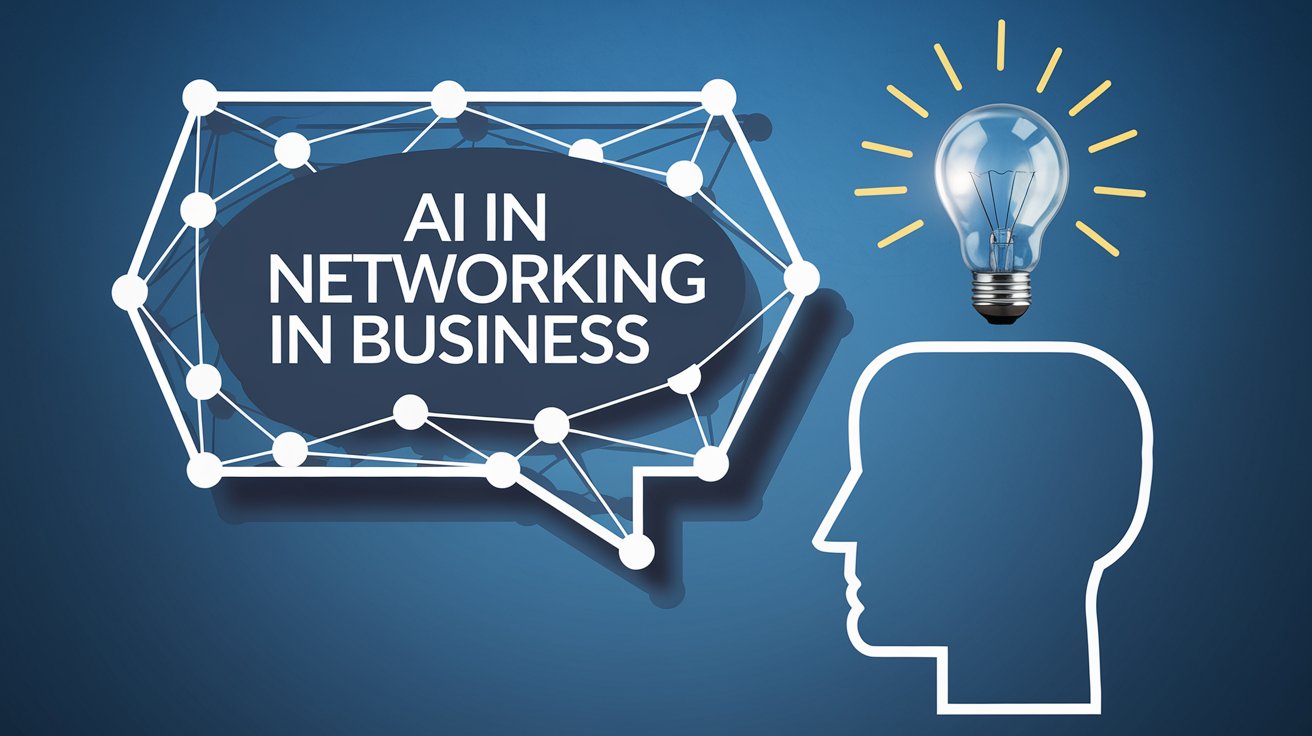In today’s digital era, Artificial Intelligence (AI) has become a driving force across various industries, transforming traditional operations into streamlined, automated processes. One of the key areas where AI is making a substantial impact is in network management and business connectivity. With the exponential growth in data traffic, device proliferation, and the increasing complexity of IT environments, businesses are turning to AI to enhance their network infrastructure, improve efficiency, and maintain robust security.
Get PDF Brochure :
https://www.marketsandmarkets.com/pdfdownloadNew.asp?id=131514910

Understanding AI in Networking

AI in networking refers to the application of machine learning algorithms, deep learning models, and advanced analytics to manage, optimize, and secure network systems. Traditional network management relies heavily on manual configurations and static policies, which can be time-consuming and prone to errors. In contrast, AI-driven networks are dynamic and adaptive, capable of learning from vast amounts of data and making real-time decisions to optimize performance and enhance security.
Key Benefits of AI in Business Networks
- Enhanced Network Management and Optimization
AI algorithms can analyze network traffic patterns, predict potential bottlenecks, and optimize data flow to ensure consistent performance. By continuously monitoring network activity, AI can identify underutilized resources, recommend reconfigurations, and balance loads to prevent congestion and improve overall network efficiency. This proactive approach reduces downtime and ensures a seamless user experience, which is critical for business continuity.
- Improved Security and Threat Detection
Cybersecurity is a top concern for businesses worldwide. AI enhances network security by identifying and responding to threats more rapidly than traditional methods. Machine learning models can detect anomalies in real-time, recognize patterns indicative of cyber threats, and automatically implement security measures to mitigate risks. AI-driven security systems are particularly effective at combating sophisticated attacks, such as phishing, ransomware, and distributed denial-of-service (DDoS) attacks, by adapting to new threats as they emerge.
- Predictive Maintenance and Reduced Downtime
One of the significant advantages of AI in networking is its ability to predict and prevent network failures before they occur. By analyzing historical data and network performance metrics, AI can identify early signs of hardware failures, software glitches, or connectivity issues. Predictive maintenance allows businesses to address potential problems proactively, reducing unplanned downtime and saving costs associated with emergency repairs and service disruptions.
- Automated Network Configuration and Management
AI enables automated network configuration, significantly reducing the time and effort required for network setup and management. Automated systems can configure network devices, enforce policies, and manage updates without human intervention. This level of automation not only accelerates deployment but also minimizes human errors, ensuring a more reliable and efficient network infrastructure.
- Enhanced Customer Experience and Support
For businesses that rely heavily on digital services, such as e-commerce and customer support, AI-driven networks can significantly enhance the customer experience. AI can analyze customer behavior, optimize data delivery, and ensure fast and reliable access to online services. Additionally, AI-powered chatbots and virtual assistants integrated into the network can provide immediate support to customers, resolve issues, and improve satisfaction.
The Evolution of AI in Networking Innovation – A Deep Dive into the Future of Connectivity

Real-World Applications of AI in Networking
- Telecommunication Networks
Telecommunication companies use AI to manage vast, complex networks that handle enormous amounts of data and voice traffic. AI helps in optimizing bandwidth allocation, managing network congestion, and improving the quality of service (QoS) for customers. Moreover, AI can predict network failures and automate maintenance tasks, reducing operational costs and enhancing service reliability.
- Enterprise Networks
In enterprise environments, AI is employed to manage internal networks, ensuring seamless connectivity between departments, branches, and remote workers. AI-driven network management systems can automatically configure firewalls, manage access controls, and prioritize traffic based on business needs, ensuring a secure and efficient workflow.
- Data Centers
AI plays a crucial role in modern data centers, optimizing server workloads, managing power consumption, and predicting equipment failures. By analyzing server data in real time, AI can dynamically allocate resources to meet fluctuating demands, ensuring high availability and minimizing energy costs.
- Smart Cities and IoT Networks
AI is essential in managing the complex networks required for smart cities and the Internet of Things (IoT). From traffic management systems to smart utilities, AI helps in analyzing massive datasets, optimizing resource usage, and improving the overall efficiency of urban services. AI-driven networks are also critical for the secure and reliable operation of connected devices in IoT ecosystems.
Challenges and Future Trends
While AI in networking offers numerous benefits, it also presents challenges, such as the need for high-quality data, the risk of over-reliance on automation, and concerns regarding data privacy and security. Additionally, the integration of AI with existing network infrastructure can be complex and requires significant investment in technology and skills.
Looking ahead, the future of AI in networking is promising. We can expect advancements in AI algorithms and models that offer even more precise network management capabilities. The integration of AI with emerging technologies, such as 5G and edge computing, will further enhance network performance, reduce latency, and enable new applications across industries.
AI is revolutionizing network management by offering unprecedented levels of automation, security, and efficiency. For businesses, adopting AI-driven network solutions is not just a trend but a strategic move to stay competitive in a rapidly evolving digital landscape. As AI continues to advance, its role in networking will only grow, driving further innovations and transforming how businesses connect, communicate, and operate.
By leveraging AI, businesses can ensure their networks are not just functional but are optimized, secure, and future-ready, positioning themselves for sustained growth in the digital age.
AI in Network: Insights from Industry Leaders like Cisco, Ericsson, Neos Networks, HPE, and Arista
